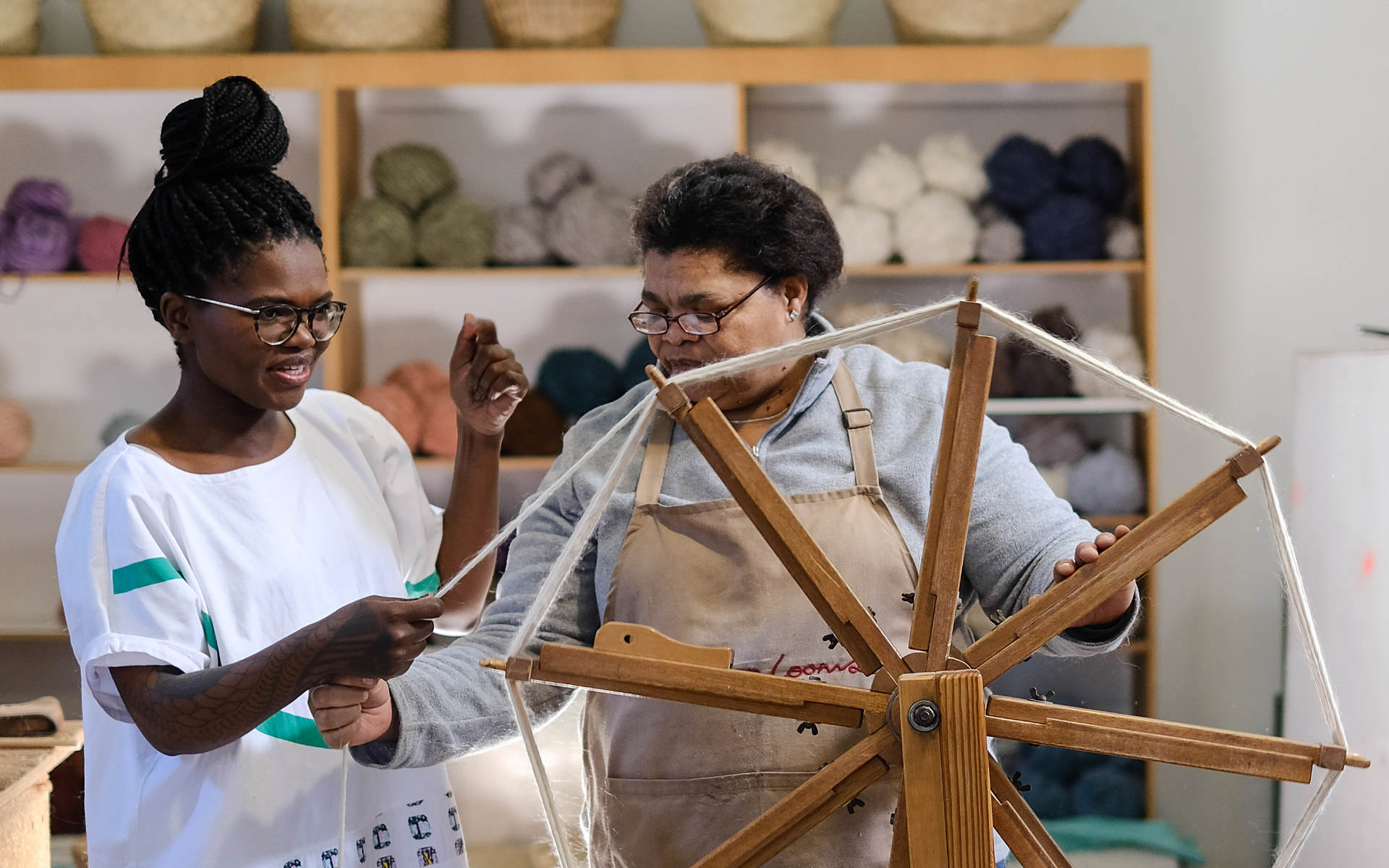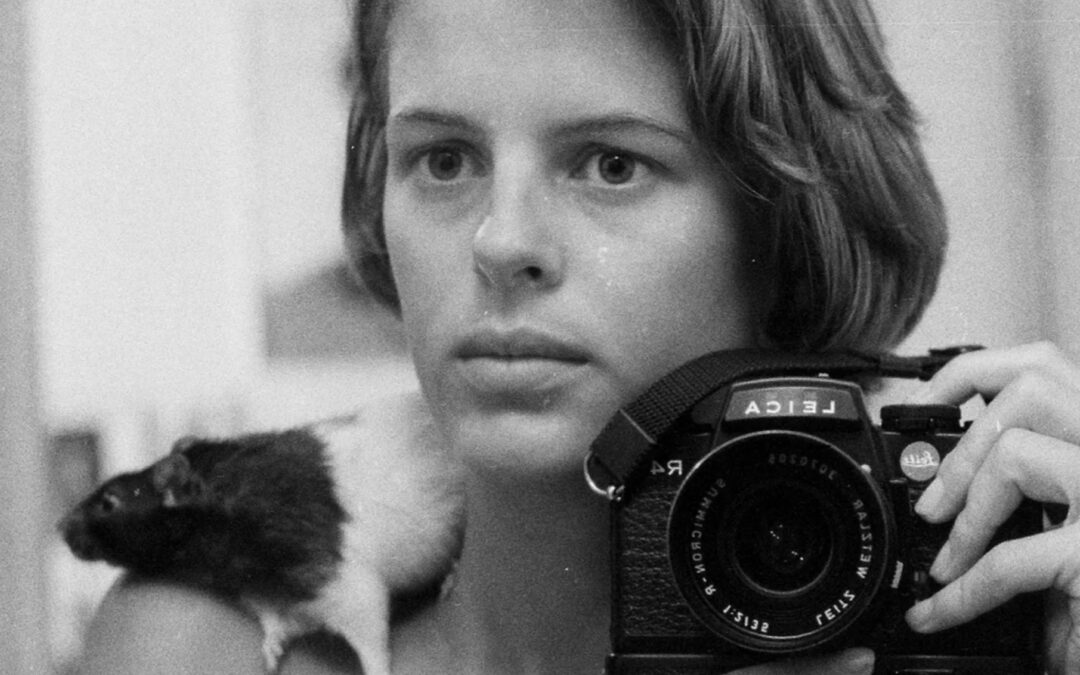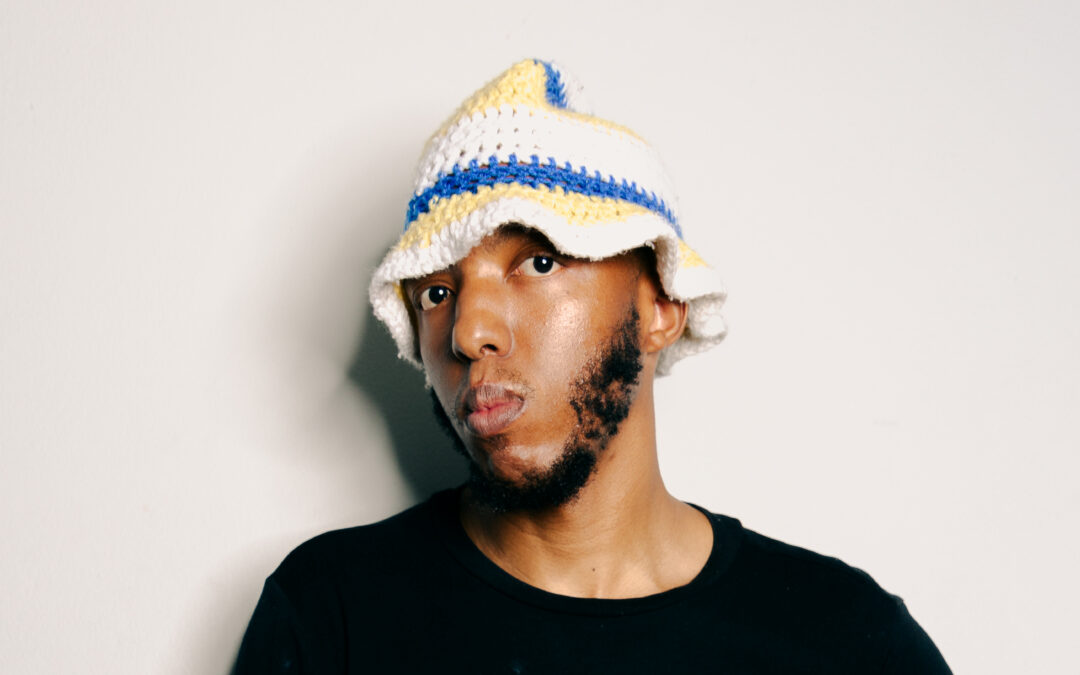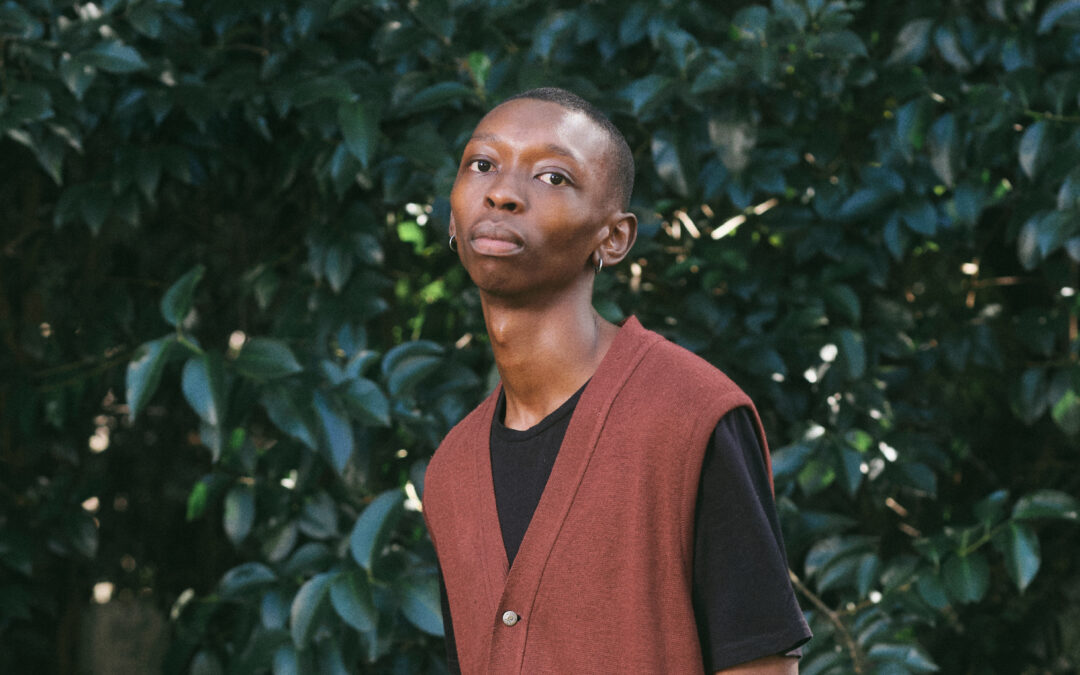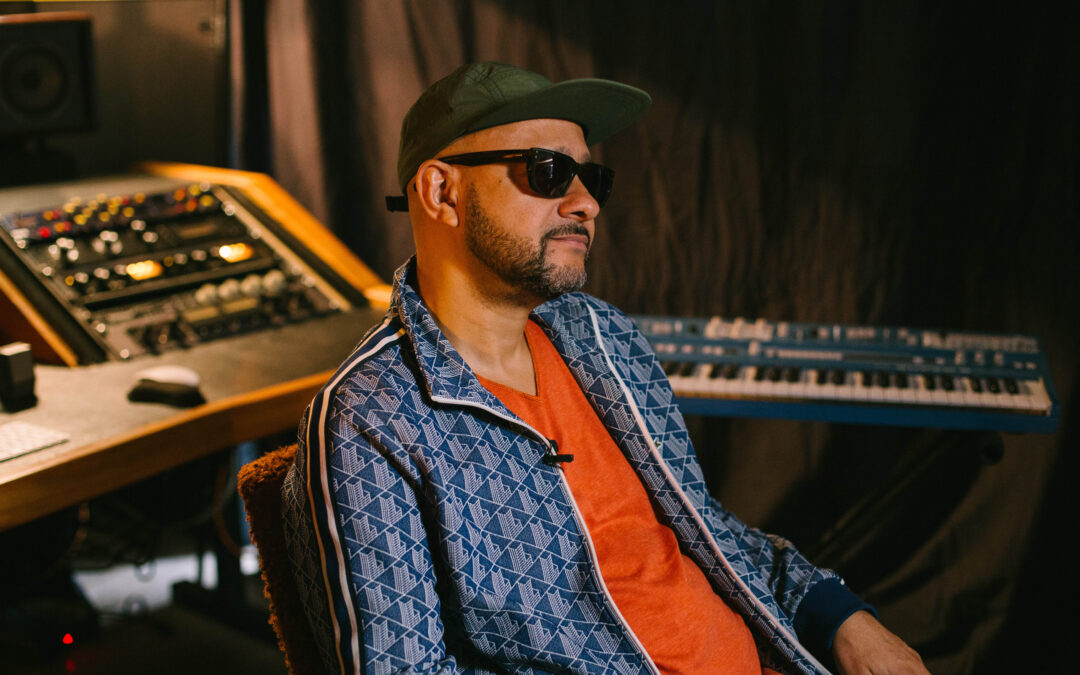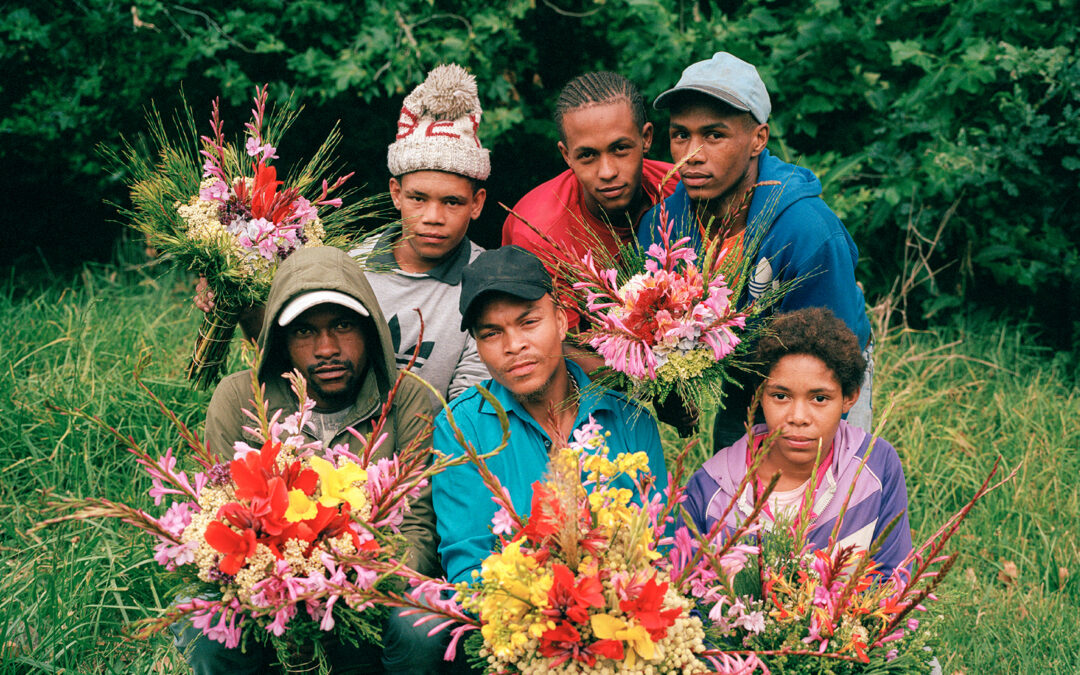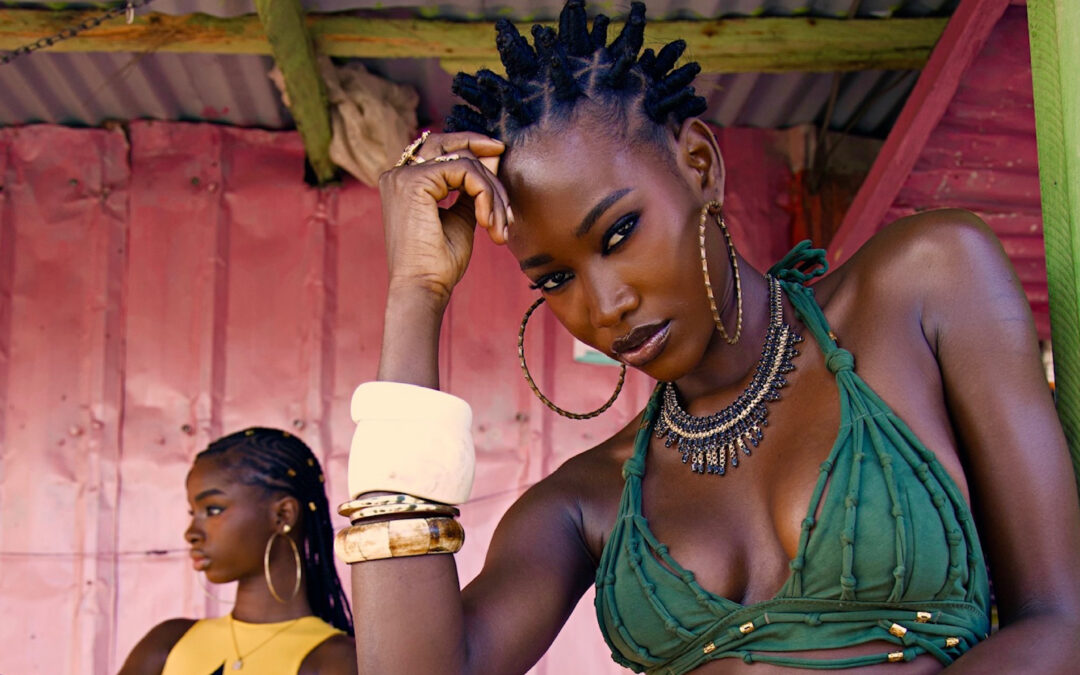Nkuli Mlangeni is the Joburg-born, Sweden-based creative founder of The Ninevites, a design studio and collaborative platform specialising in textiles. Nkuli has been named by New York Times among 12 creatives of the African Diaspora who are at the center of a global shift. That is to say, her work in heritage preservation, focussing on black empowerment and re-centralising an African story means she is worth paying attention to. Her creative work has roots in the native craftsmanship of Peru and her own indigenous background in Mzansi as a descendant of Ndebele and Swati people. One of her earliest works, the Sankara Rug, was voted the most beautiful object in South Africa in 2017 by Design Indaba and since then The Ninevites, with Nkuli at the helm as a facilitator and coordinator of creatives and artisans around the world, has orchestrated collaborations with an international wave of success.
In our conversation (which she called into from Stockholm) she reflects on her journey, her feelings on the future of craft on the African continent, being a textile artist, business owner, masters student, mother, curator of events and exhibitions and simply being a South African, sharing her creativity and craftsmanship with the world.
CEC: We were so moved by the short fashion film you created in Lesotho in 2012 with Johno Mellish and Kent Andresen – at the time of the inception of The Ninevites. Can you share more about how the brand came about?
I was working in Cape Town for a platform called Livity Africa but I came from a fashion styling background. Because I missed working in fashion, I started a side passion project making T-shirt dresses. I invited friends of mine (including Johno and Kent) to go to Lesotho, where my mom grew up, to shoot there. Immediately afterwards I started ‘Bornintostyle’, as a follow-up. I wasn’t necessarily interested in selling clothes, but I was interested in creating beautiful stories and documenting them. Bornintostyle was focussed on celebrating black men and their style, like the Joburg Swenkas, and their influence on culture and fashion.
[Listen to the Bornintostyle conversation facilitated by Nkuli featuring Laduma from Maxhosa about his relationship between heritage, textiles and his brand here.]
For a while fashion (and conversations around style) was a side hustle until I got the opportunity to study in 2013 at the Kaospilot school. As part of the scholarship we needed to start a social enterprise – and so the passion turned into a business. At the core of it I try to do the things that I’m passionate about but translate them into different projects, like textiles, travel and Black Culture.
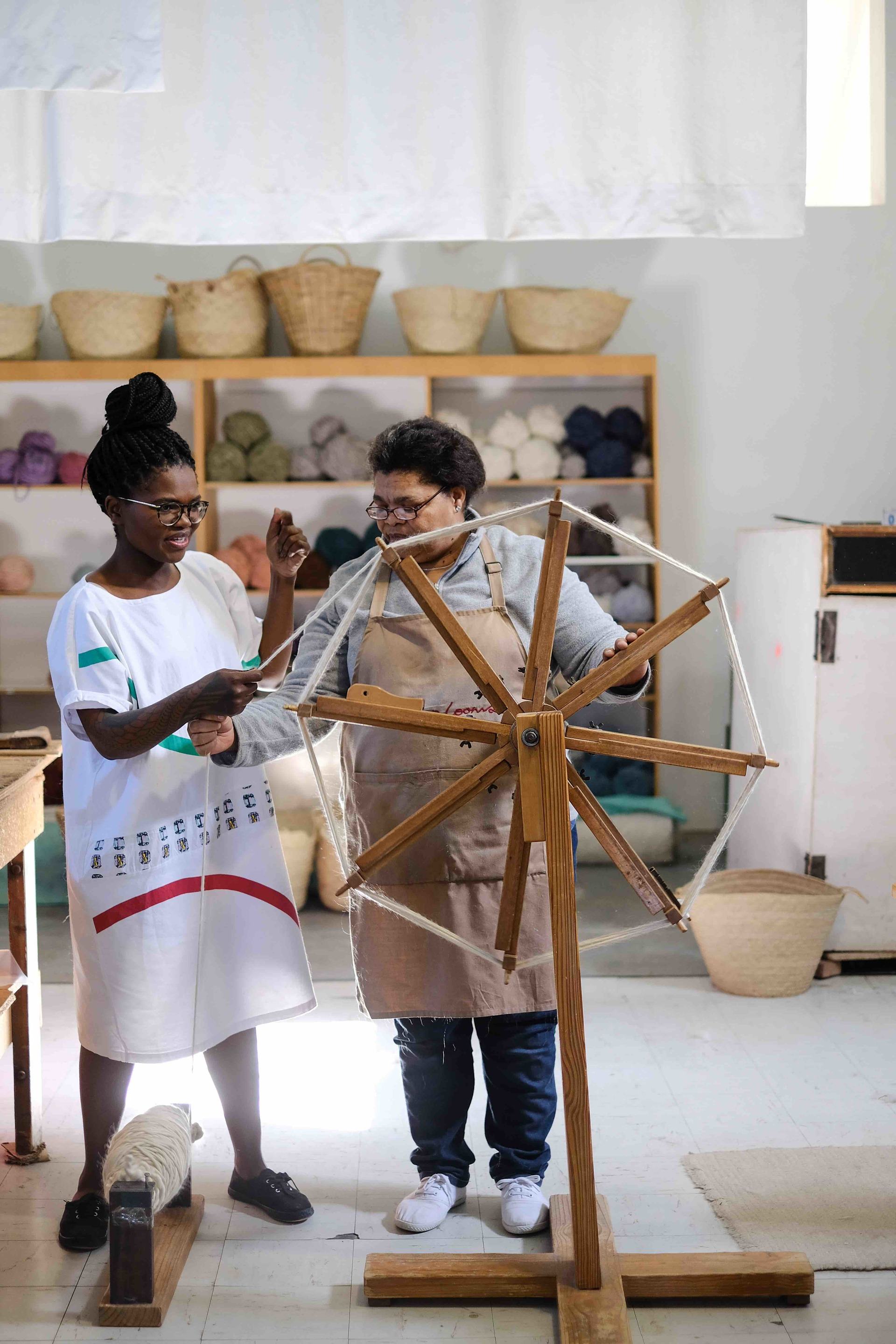
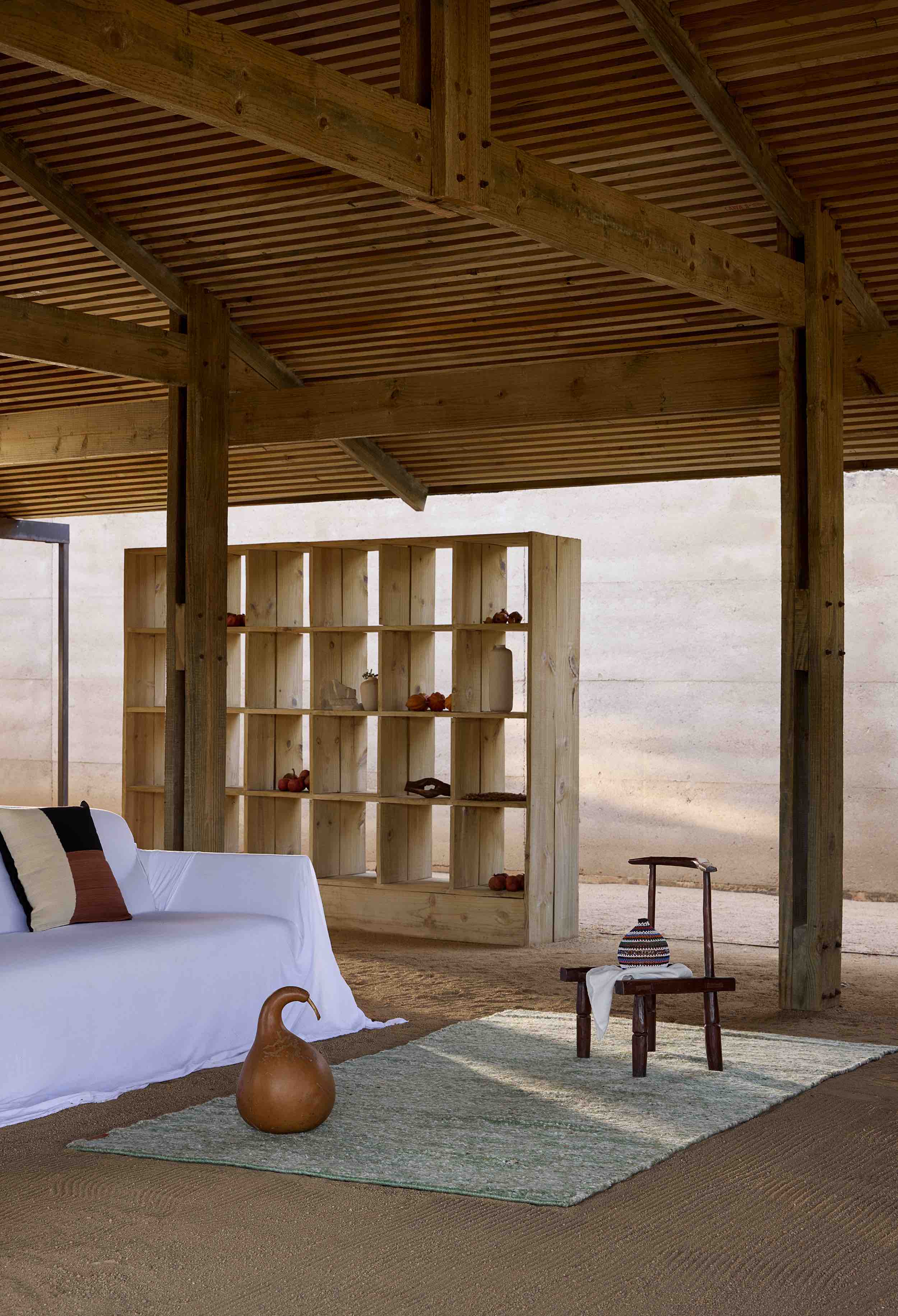
CEC: With your mom being from Lesotho; you living in multiple countries and traveling so much – from Peru, to Mali – how does the multiculturalism and multinationalism of your life and background weave into your work?
One of the things I appreciate about textiles is the way it allows me to travel to spaces, not just physically – looking at the weaving of Ghana or block printing from India transports me to those places. It’s also the language of textiles and how that’s embedded in cultural heritage. It’s not just textiles but craft as a whole because you can learn so much about different places in the world through craft as it’s one of the oldest forms of documentation. Whenever I travel to Kenya to see the beading that the Masai women are doing or Mali (where I was recently), it’s incredible learning about how textiles link to a deep past. I’m so grateful to be doing what I love.
CEC: Further to this, you’ve shared “Textiles played a very big part in every single ceremony that we have at home”, when you’re born, when you come of age and when you die – can you share a bit about what that means to you and how you’re able to share that with a global audience?
You take a lot of things for granted when you’re young. I still regret that. I actually never asked my great grandmother much about her culture. Growing up in a township in Johannesburg, when we had our ceremonies like lobola for example, I never really took it seriously. I never asked the questions, but now that I am working with crafts and textiles I find my culture so cool and fascinating – being able to then share that and help preserve black culture, celebrating my heritage through the work that I do is something that I only really realised when I was older. It makes you think about growing up with ‘that lady with the beads next door’ in a whole different light – her beading was so intricate, powerful and beautiful.
I’m really interested in education. I’m trying to figure this out as I go as well – especially with starting the Pop-up Craft and Design Academy in Prince Albert. But more on that later.
Of course, a lot of the craft, design and art was stolen from Africa by the colonialists and so, we’ve lost a lot of our history and references. When you Google ‘African Craft’ or ‘African Design’ I think it’s getting more and more interesting in terms of representation and how that’s being communicated, from the inside as opposed to from a Western perspective. West Africa is doing an incredible job at centralising and reclaiming an African voice. It makes you ask: how do we find our way of editing our education? How do we design curriculums that make sense to us, that are informed by our people, for the betterment of the continent?
CEC: As a South African, and having never been there, I’m so curious to know what it’s like to live in Sweden?
I’m super grateful that I can be in this space where my craft is supported. I am also very grateful that I am in a place where I feel safe as a woman; where I can move around freely. But, there is no country that is as cool as South Africa. There is honestly no place like South Africa. It’s wild. As a masters student in Stockholm, I’m really impressed at how they support culture, but I honestly think that if we could work on the violence and safety in South Africa, improve systems and support artists, that would be amazing.
CEC: On Instagram you spoke about visiting KZN and the grant you received to continue heritage preservation work you started since the early days of The Ninevites – can you share a bit more about this heritage preservation work?
Heritage preservation is something I felt very strongly about since the beginning of The Ninevites. I’m creative, but the business side of things has never been a strength for me – I celebrate every time I make a sale! What I enjoy is the social side of heritage preservation work. The Ninevites as a platform is now structured to allow me to be able to get funding and support the social and the heritage side. It allows me to be able to collaborate with other creatives and artists in making these beautiful pieces. The goal is to get to a place where there’s more of the documentation and cultural preservation. It’s so much more than just selling rugs. So hopefully in the next six months we will have a better way of showcasing that on our website.
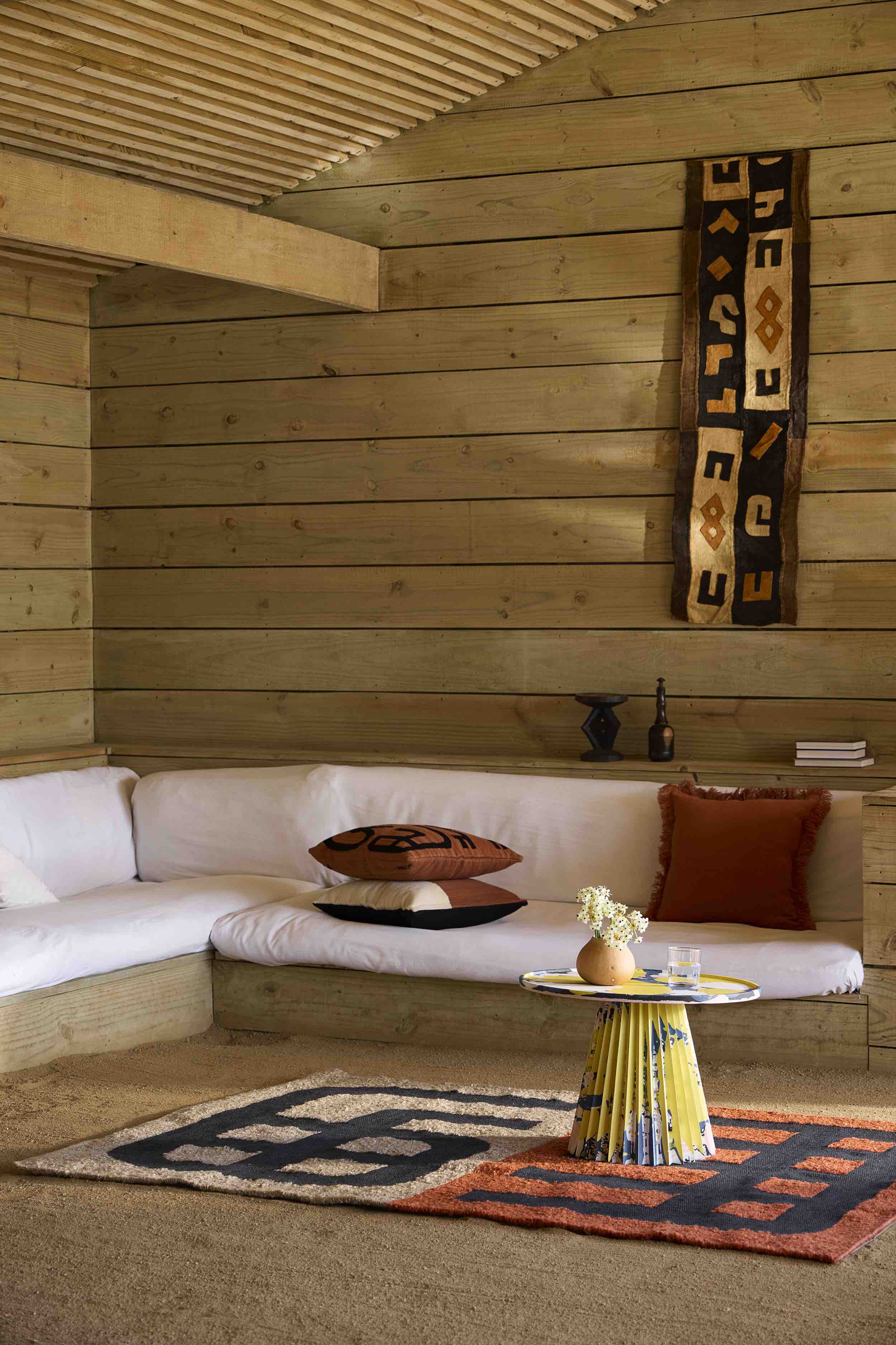
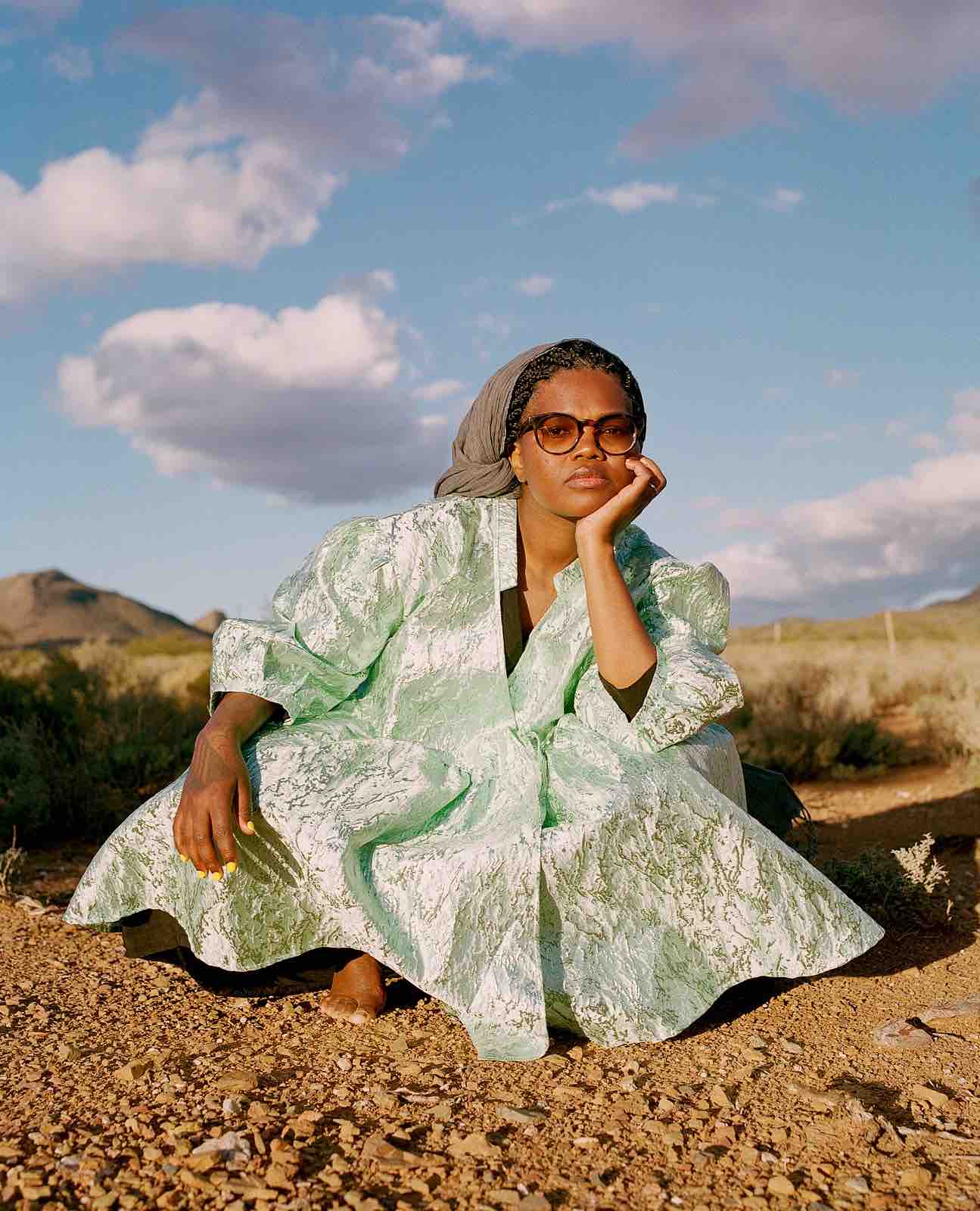
CEC: The Ninevites also does project management, consulting work, research, workshops and design commissions for brands and cultural institutions. What is your favorite part of your work?
I like spending a day with the ladies at the weavery in Prince Albert or spending it in Mali with artisans. I’m not necessarily interested in making myself. The thing that I’m more passionate about is supporting the artisans, creating the connection between them and the world and showing their work. My strength is in organizing, curating or bringing people together.
CEC: You’ve done so many collaborations and projects to date, how do these usually come about?
I just reach out to people whose work I like, whether they’re from Senegal or Paris and ask, “Would you be interested in collaborating with me?” and we go from there. It’s very simple.
CEC: You work with weavers in South Africa (Karoo), Peru and in Europe– how do you go about facilitating that?
People. There are incredible women who are actually the ones that are there on the ground. Sophia in the Karoo and Maria in Lima– they do the quality control, so I facilitate them and they make everything possible.
I started working with a lady in rural KZN named Sis Phindi, we communicate solely through WhatsApp videos and images. She’s making such cool woolen ‘Icansi’ mats which are so unique – we’re making an exhibition together in September.
CEC: After doing an indigo dyeing workshop in Mali you mentioned how excited you are about the future of craft in the continent – what do you think about the eyes of the world being on Africa at the moment?
Music is a great metaphor for this. At the moment I do not listen to any other music except music from Africa. That for me is wild because when I was younger, I had no idea what artists in Nigeria were doing, but now I try to support African creativity as much as I can.
I feel like what is happening in the continent is so powerful! Social media has a big part to play because before we were only exposed to what was happening in the West. Now we’re able to find our own channels of doing and sharing. I’m excited about getting to a point where we own all of it, that what we create is ours; where our industry is not depending on Europe to sustain itself; that you have people who support local makers. We are slowly getting there.
CEC: Further to that, what do you think the future of African craft looks like?
I live in Europe, but honestly don’t care what happens in Europe. For me it’s important that craft in Africa is self-determined, where we define how we want it to be; where it’s more inclusive, more accessible, empowering and giving back to our communities; where it’s documented and it stays where it belongs.
It is with this in mind that we take Nkuli’s experiences, practices and philosophies as inspiration and contemplate our own lives, actions and mindsets. As Africans, we ought to carefully consider how we can support local makers and bolster our economy, engage with rebuilding narratives around African heritage and be mindful of weaving a tapestry of multicultural celebration and education around diversity.
Visit The Ninevites to learn more about Nkuli’s projects and products
Nkuli is participating in the following events in September 2024:
Pattern Language — Weaving past & present (Norway)
Homo Faber 2024:The Journey of Life (Venice)
For further inspiration on art and education, visit Freedom and Balance
Written by: Grace Crooks

